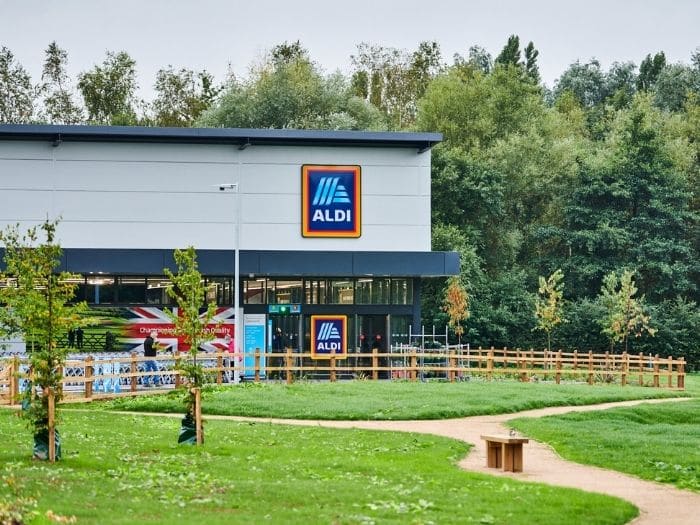
If you’re new to SEO, becoming an SEO expert may seem incredibly complex and like something that takes decades to master.
But it doesn’t have to be that way.
You can become an SEO pro by focusing on the SEO fundamentals, building the right soft skills, and utilizing industry tools.
In this article, we will look at the steps you need to take to become a sought-after SEO expert and position yourself ahead of the competition.
What Is an SEO Expert?
An SEO expert is a professional marketer who uses search engine optimization techniques to improve the visibility of websites in search results.
As an expert SEO, you know how to look at a website and figure out where it can be improved so that it gets more traffic and ranks higher on major search engines.
An SEO does several things, including:
- Find relevant keywords that can drive organic traffic from search engines
- Optimizing website content and meta tags
- Improving site architecture and the user experience (UX)
- Building high-quality backlinks from authoritative websites

Top SEO experts also keep an eye on how well a website is performing.
Tracking metrics like rankings and traffic and making decisions based on that data can help a website’s search presence improve.
Why Becoming an SEO Expert Matters
Every online business—whether a multi-million-dollar corporation or a hobby blog—needs SEO.
SEO matters if you want your business to get visibility online.
Plus, SEO expertise opens up a wide range of career opportunities.
You can work in digital marketing agencies, in-house marketing departments, or even as a freelance SEO expert.
Employers value professionals who can optimize websites to attract organic traffic, generate leads, and boost conversions. SEO skills complement other marketing disciplines, making you a well-rounded digital marketer.
How to Become an SEO Expert
Becoming an SEO specialist offers a range of benefits, including diverse career opportunities.
But here’s the thing:
How do you actually become an SEO expert?
Let’s look at five steps to become an expert in search engine optimization, including the skills you need to master.
Step 1. Learn the Fundamentals of SEO
When trying to gain SEO experience and become an SEO expert, one of the most important things to do is to learn the basics.
Keyword Research
Keyword research identifies and analyzes the terms and phrases people use while searching for information, products, or services on search engines.
It’s an important SEO skill to learn because it directly affects search engine rankings.
Some different aspects of keyword research include:
By knowing which keywords and phrases are most relevant to a website’s content or business, you can make targeted SEO campaigns to rank for those specific terms.
Understanding search intent is another significant aspect of keyword research.
Why?
Because you need to provide the right information and meet the needs of your target audience if you want to consistently rank well, build trust, and boost conversions.
By understanding the four main types of search intent (informational, navigational, commercial, and transactional), SEO experts can optimize content in a way that meets users’ needs.

Semrush’s Keyword Magic Tool is a great place to start with keyword research.
You can explore your niche and find long-tail keywords that are related semantically and broken up into subgroups relevant to your industry.
Start with a seed keyword:

Next, hit “Search,” and the tool will bring up suggested keywords, their intent, and search volume.

Pay attention to the “Match Modifiers,” which let you make the keyword selection more or less specific.

Further Reading: How to Use Semrush for Keyword Research
On-Page SEO
On-page SEO refers to anything you can do on-site to improve your search engine rankings and/or visibility.
These optimizations can have a big effect on how well your site does in the search engine results pages (SERPs).
Some of the most common aspects of on-page SEO include:
When done right, on-page optimization can help search engines like Google figure out how your webpages relate to individual search queries and lead to better rankings.
One way you can pinpoint on-page weaknesses and improve your rankings is by using Semrush’s On-Page SEO Checker tool.
Start by heading to the tool and entering the domain you want to get insights on. Then, select the location you want to target and hit “Get ideas.”

The tool will auto import a number of keywords. But you can also import them manually with a CSV file, from Google Search Console, or through organic research.

Then, click “Collect ideas.”

The tool will then take you to an overview page where you can see “TOP pages to optimize.”

Next to each page listed, there is an “Ideas” button.

By clicking it, you’ll see a breakdown of ideas for that specific page. This includes ideas on strategy, how to optimize for search features, ideas for better content optimization, as well as semantic keyword ideas.

The tool can also check whether any technical or user experience issues could be holding your page back.

Each section explains what the idea is and why you should implement it.

Technical SEO
Technical SEO is the process of optimizing a website for search engines and to improve the user experience.
Although advanced technical SEO is often a specialized area, every SEO expert should understand the fundamentals of the technical aspects of SEO.
Some of the most common technical SEO elements include:
Technical problems and errors can happen on websites, which can make it difficult for search engines to crawl and index your site.
This can then hurt your website’s search engine rankings. And other technical SEO issues, such as page speed problems, can hurt the user experience.
An SEO expert with technical know-how can quickly identify and rectify issues such as broken links, duplicate content, errors, and other technical glitches.
You can start by using Semrush’s Site Audit to set up automatic crawls. It will look for more than 140 technical and on-page SEO issues on your site.
Enter your URL and click “Create Project” to get started.

Then, you will need to change the settings. Here’s a handy configuration guide to help you out.
Then, click “Start Site Audit.”

After the tool crawls your site, you will see something like this on your dashboard:

Check your site’s “Site Health” score. It measures the overall SEO health of your site based on how many problems it finds and how bad they are.

Then, click on the “Issues” tab.

You will see “Errors,” “Warnings,” and “Notices” next to each issue on your site. You can work on fixing them one at a time.

If you don’t know how to fix the issue, click the “Why and how to fix it” link next to the problem for a quick explanation.

Link Building
Backlinks from highly authoritative, trusted websites act as a vote of confidence that can boost your website’s authority in the eyes of search engines and users.
Building high-quality backlinks is one of the key elements of off-page optimization.
Popular link building techniques include:
Not only are backlinks one of Google’s most important ranking factors, but they also help search engines better understand what your website is about.
When Google follows a backlink to your site, it may also crawl the page to find any additional links on it. If you have internal links on that page, Google may also crawl and index those pages.
This helps Google to understand how the pages on your website relate to one another and relate to relevant search queries.

Further Reading: Link Building Strategies: 8 Ways to Build Links in 2023
Local SEO
Local SEO focuses on optimizing a website and Google Business Profile to rank for local search queries. It’s especially important for businesses with a physical location and key for those looking to rank in the “local pack.”
Which looks like this:

The goal is to improve visibility and attract more local customers in specific geographic areas.
Local SEO includes:
- Google Business Profile (formally Google My Business) optimization
- Local citations and directory listings
- Location pages
- Local schema markup
By making these changes, businesses can show up higher in local search results, attract more local customers, and get more people to visit their physical locations.
Analyzing and Measuring Performance
Part of being an SEO expert is setting measurable goals and benchmarks you can use to evaluate your performance. These are called key performance indicators, or KPIs.
Common KPIs SEOs measure include:
- Positions for target keywords
- Organic traffic
- Click-through rate
- Backlinks
- Engagement time
- And more

Measuring performance also helps you understand the return on investment (ROI) of your SEO efforts. This is the relationship between what you spend on SEO and the results you get.
ROI is one of the most important KPIs business owners look at when considering renewing SEO contracts, so it’s an important metric to measure as you rise through the ranks to become a true SEO expert.
Step 2. Master These Soft Skills
Besides a deep understanding of how search engines work, SEO professionals need a number of soft skills:
- Analytical thinking: Analytical thinking allows an SEO expert to make informed decisions and determine the best strategies for improving search engine visibility and organic search traffic
- Adaptability: Search engine algorithms are constantly evolving and website updates can cause technical problems. You need to be able to change your SEO strategy quickly to address the most important things as they come up.
- Excellent communication: Being a great communicator is key if you want to be successful in the SEO industry. Especially if you want to be a freelance SEO expert—how well you communicate can make or break your relationships with clients.
Step 3. Gain Practical Experience
One of the best ways to boost your SEO knowledge and become an expert is by gaining hands-on experience.
There are a number of ways you can do this:
Build Your Own Personal Projects
One of the best ways to gain practical experience is to build your own websites and work on them.
Whether it’s a niche site, a business site for a side hustle, or a hobby blog.
This allows you to build something from scratch while putting your knowledge to practical use.
It also allows you to make mistakes and see what works and what doesn’t without the fear of ruining someone else’s website. Giving you more freedom to dig deeper and really experiment without the fear of failure.
Plus, it allows you to build something you can add to your portfolio and show off to potential clients in the future.
Charity Work
Another great way to build experience and help out a local organization is to offer your skills to a local charity.
A quick Google search for “charities in [your area]” will bring up charities local to you.
You can then enter the domain of a charity into Semrush’s Domain Overview to see their traffic and whether they could use some SEO assistance.

From here, you can use a tool like Hunter.io to find email addresses for key representatives in the organization simply by entering the URL of the charity.

You can then use these to reach out to the charity and offer your assistance.
Internships
An SEO internship allows you to get hands-on SEO training with some of the best companies in the world.
You can get the opportunity to work with industry leaders and gain experience you wouldn’t get anywhere else.
On-the-Job Experience
Another way to get hands-on experience is to dive straight into the workforce.
Many marketing teams have an SEO team that offers junior-level roles.
This is a great place to start—by working under experienced SEO managers and getting an understanding of how SEO services are offered and managed.
Many of these companies offer career progression opportunities. Allowing you to work your way through the ranks from junior to expert in a relatively short period of time.
Step 4. Stay Updated on Industry Trends
SEO experts must stay updated with industry trends. Because search engines like Google frequently update their ranking systems to improve the quality of search results.
These algorithm updates can significantly impact website rankings and organic traffic.
By staying informed about these updates, you can adapt your optimization strategy to align with the latest best practices.
Here’s how:
- Read Google’s official updates: Stay informed about Google’s algorithm updates and guidelines by regularly checking the Google Search Central Blog. Google often provides insights into changes that impact search rankings.
- Participate in online communities: Engage with SEO-related communities, forums, and social media groups. Platforms like Reddit, LinkedIn, and X (formerly Twitter) have active SEO communities where professionals share insights, discuss trends, and provide valuable resources.
- Attend SEO webinars and conferences: Keep an eye out for SEO webinars and conferences, both online and offline. These events feature presentations from industry experts and provide a platform to learn about emerging trends and network with peers.
- Network with SEO professionals: Build and maintain connections with fellow SEO professionals. Networking can lead to valuable discussions and the sharing of insights and knowledge.
- Set up Google Alerts: Create Google Alerts for specific SEO keywords, industry terms, and competitors. Google will send you email notifications when new content related to your chosen topics is published.

Staying current with industry trends also allows you to discover and leverage new opportunities. This helps to ensure that the websites you work with remain visible and competitive in search.
Showing you know a lot about the latest changes in your field and can use them well is a sign of expertise and professionalism.
This can help you build a better reputation as an SEO expert, bring in new clients, and give you more chances to work with others in the industry.
Step 5. Continuously Improve and Adapt
SEO is an ever-evolving landscape.
If you want to be (or stay) an SEO expert, you must constantly adapt to new algorithm updates, become familiar with the latest tools, and understand the most recent industry trends.
With this, it is important to continue your professional development.
You can do this by taking advantage of relevant courses, like those in the Semrush Academy. Which can help you advance your career and keep you current on industry trends.
Advanced Strategies for SEO Mastery
For those with a solid foundation in SEO and looking to take their expertise to the next level, it’s important to delve into advanced strategies that can further optimize websites for better search rankings and increased organic traffic.
This can be advanced technical SEO elements like structured data and hreflang optimization. Or specializing in a particular area, such as mobile optimization or voice search optimization.
Some ways you can advance your knowledge include:
Having the right tools allows you to automate tasks and focus on what’s most important.
There are a number of different areas SEO experts need tools for, including:
Analytics and Tracking
These tools offer comprehensive data sets and metrics to effectively make informed decisions and optimize websites.
When using SEO analytics tools, there are several key data points to take note of—like organic traffic, click-through rate, bounce rate, conversion rates, and average engagement time.
There are several top SEO analytics tools available that offer a wide range of features and functionalities. Here are some of the best ones:
Keyword Research and Optimization
SEO tools assist in keyword research by providing keyword suggestions, search volume, and competition analysis.
These tools help identify relevant keywords to target, optimize on-page content, and improve organic rankings. They can also track keyword rankings and monitor changes over time.
Some keyword tools include:
Technical Website Optimization
Specific SEO tools can help you identify website technical issues and errors that may impact search engine crawling and indexing.
They offer features like detecting broken links, duplicate content, missing meta tags, and other issues.
Top choices when it comes to assessing a website’s technical health include:
Backlink Analysis and Link Building
These tools offer insights into a website’s backlink profile, including the number of backlinks, referring domains, and anchor text distribution.
This information helps you assess the quality and authority of backlinks and implement effective link building strategies.
These tools can also identify potential link building opportunities to enhance a website’s backlink profile.
Some great choices include:
Backlinks are a key SEO ranking signal. If you intend to do link building on your own, these tools are extremely valuable to have in your stack.
Competitor Analysis
SEO tools allow experts to analyze their competitors by providing insights into their organic rankings, keywords they are targeting, and backlink profiles.
Without these tools, it can be hard to acquire the data you need to identify competitor strategies, benchmark performance, and discover new opportunities to outrank competitors in search engine results.
That’s what makes these tools such a vital part of your arsenal as an SEO expert.
Here are some top options:
You Can Become an SEO Expert
Becoming an SEO marketing expert is a journey that requires dedication, continuous learning, and practical experience.
It starts with understanding the fundamentals of search engine optimization and mastering key concepts such as keyword research, on-page optimization, and link building.
Additionally, staying up to date with the ever-evolving SEO industry is crucial.
This involves keeping track of algorithm updates from search engines, learning about new SEO tools and techniques, and understanding how user behavior and trends can impact search rankings.
With the right dedication and tools—like Keyword Magic Tool, Site Audit, and Domain Overview—you can begin your journey to becoming an SEO expert.
Start today with a free account.





![What Is a Markup Language? [+ 7 Examples] What Is a Markup Language? [+ 7 Examples]](https://static.semrush.com/blog/uploads/media/82/c8/82c85ebca40c95d539cf4b766c9b98f8/markup-language-sm.png)